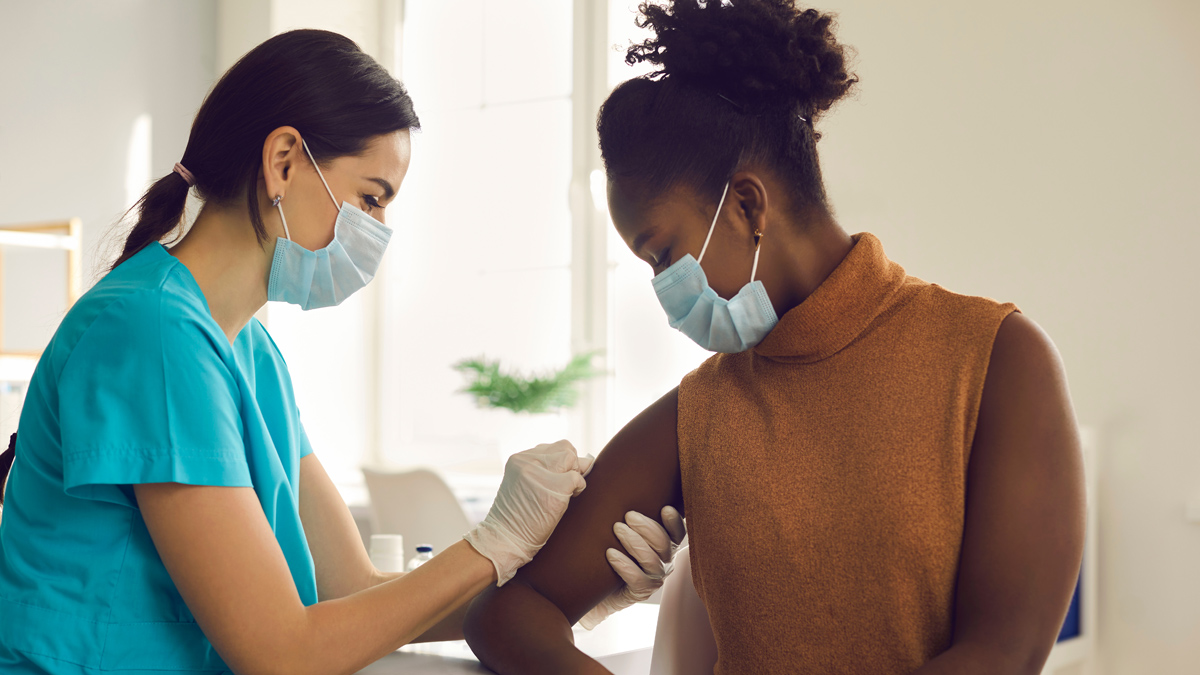No concerns about the vaccines and safety in pregnancy have been raised by the World Health Organization or regulatory bodies in the US, Canada, UK, or Europe.2
- The COVID-19 vaccines are not recommended for anyone with history of severe allergies to any previous vaccines or injectable therapies.1
- If you have the vaccine it is still recommended to follow current advice around wearing a mask, washing hands with soap and water for 20 seconds, and maintaining a social distance.1
Many women of childbearing age are concerned about the COVID-19 vaccine affecting fertility, pregnancy, and breastfeeding.
Fertility and COVID-19 vaccines
There is no evidence to support the stories appearing online, which falsely link COVID-19 vaccines to infertility.3 Official guidance suggests there is no reason to delay getting pregnant following all required doses of a COVID-19 vaccination.1,2 Pregnancy testing should not be a routine requirement prior to receiving a vaccine.1,2
Pregnancy and risk around COVID-19 and vaccines
Generally the chances for severe health effects after being infected with COVID-19 are low.
However, data from the US and the UK found that if you are pregnant, compared to non- pregnant women of the same age, there is an increased risk of severe COVID-19 related illness.4 Pregnant people with COVID-19 might also be at increased risk of complications, such as a preterm birth, compared with pregnant women without COVID-19.1,4 Therefore it is important to embrace all methods, such as social distancing, to reduce the risk of infection.4
While several vaccinations are often used in pregnancy, such as for influenza or whooping cough, the COVID-19 vaccines are not being administered in those who are pregnant as standard.1,2,5 There is no evidence to suggest the COVID-19 vaccines will cause harm, and studies are planned on their use in pregnancy.1 However the initial clinical studies did not include pregnant women, therefore there is currently not enough safety data to recommend routine use.1,2,6
If you are in an “at risk” group and have been offered the vaccine, it is best to speak to your doctor or nurse about your personal situation to come to an informed decision.1,2,6 You may wish to have the vaccination while pregnant, or wait until after the birth.
Breastfeeding after being vaccinated
Despite the lack of data, experts have not recommended that anyone stop breastfeeding after being vaccinated against COVID-19.7 This is because breastfeeding is associated with many health benefits and it is not thought that non-live vaccines would pose a risk to a breastfed baby.2 In fact antibodies produced through vaccination may even be passed on to the baby through breast milk.7 However the decision is personal, and you may wish to discuss the situation with your doctor or nurse.
Sources:
- Vaccination Considerations for People who are Pregnant or Centers for Disease Control and Prevention (CDC). https://www.cdc.gov/coronavirus/2019-ncov/vaccines/recommendations/pregnancy.html. Updated February 12, 2021. Accessed March 5, 2021.
- COVID-19 vaccination: a guide for all women of childbearing age, pregnant or breastfeeding. UK Government. https://www.gov.uk/government/publications/covid-19-vaccination-women-of-childbearing-age-currently-pregnant-planning-a-pregnancy-or-breastfeeding/covid-19-vaccination-a-guide-for-women-of-childbearing-age-pregnant-planning-a-pregnancy-or-breastfeeding. Updated March 1, Accessed March 5, 2021.
- No evidence Pfizer Covid-19 vaccine affects women’s Full Fact. https://fullfact.org/health/vaccine-covid-fertility. December 8, 2020. Accessed March 5, 2021.
- Mullins E, Hudak ML, Banerjee J, et Pregnancy and neonatal outcomes of COVID-19: co-reporting of common outcomes from PAN-COVID and AAP SONPM registries. Ultrasound Obstet Gynecol. 2021. Accepted Author Manuscript. DOI:10.1002/uog.23619.
- Vaccines During and After Centers for Disease Control and Prevention (CDC). https://www.cdc.gov/vaccines/pregnancy/vacc-during-after.html. Updated December 16, 2019. Accessed March 5, 2021.
- Coronavirus disease (COVID-19): Vaccines World Health Organization. https://www.who.int/news-room/q-a-detail/coronavirus-disease-(covid-19)-vaccines-safety. February 19, 2021. Accessed March 5, 2021.
- ABM Statement: Considerations for COVID-19 Vaccination in Lactation. Academy of Breastfeeding Medicine. https://abm.memberclicks.net/abm-statement-considerations-for-covid-19-vaccination-in-lactation. Updated December 14, Accessed March 5, 2021.


